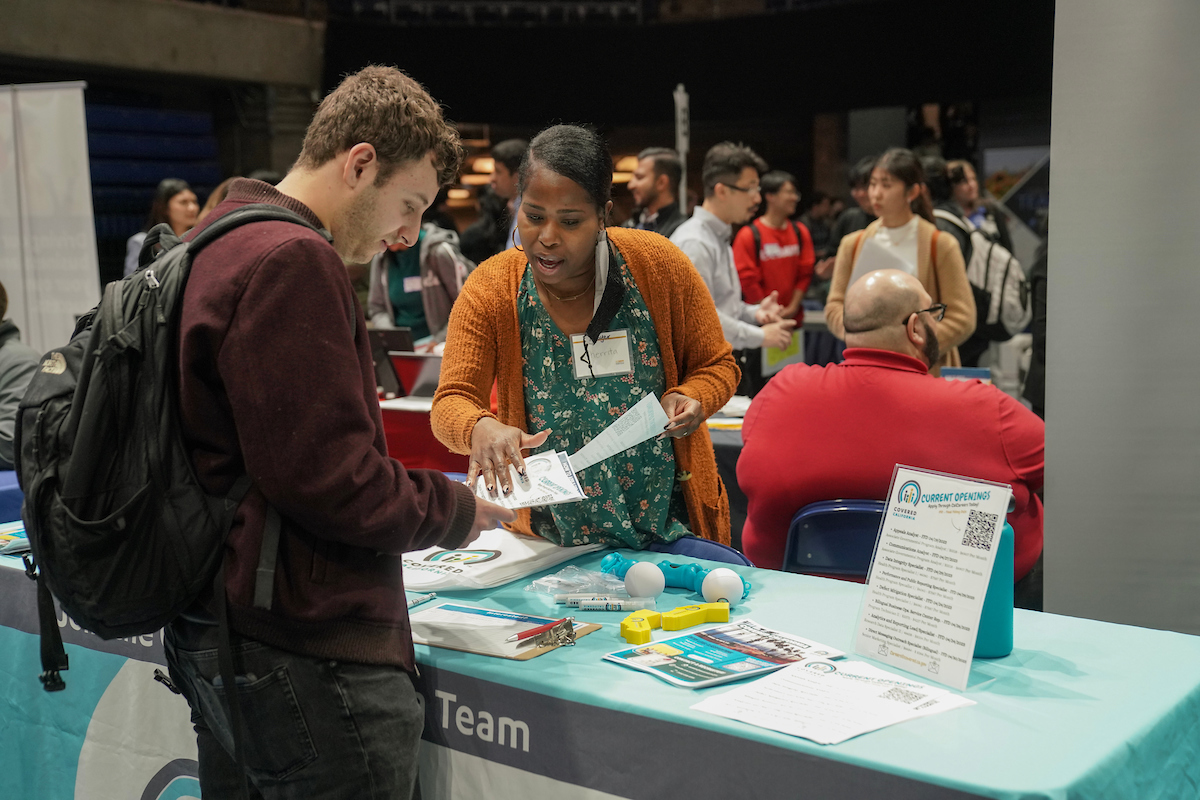Internships are a valuable opportunity to gain real-world experience. You can develop your skills and build connections in your field. But navigating the internship landscape can be challenging, especially if you are new to the process. As a sophomore myself, I can relate to the struggles that come with searching for internships. It is a long journey, but we will try to break down the essentials so it does not seem as daunting!
First, let’s talk about the different types of internships. There are paid internships, unpaid internships, summer internships, and on-campus internships. You could choose to prioritize financial compensation or experiential learning. Ask yourself questions to gain a better understanding of what you need, said career advisor Emma Singletary with the Internship and Career Center. “Think about what you need out of a job. Do you need to be flexible with your schedule? Are you getting ready to graduate and work 40 hours a week from 9 to 5? Do you need it to be paid? If so, how much do you need to be paid?” Singletary added. “Identify what you need from an internship, what are you hoping to accomplish?”
Once you have evaluated what you are looking for in an internship experience, then you can begin the search for internships. The timeline for when to begin differs between career fields. But generally students can start researching companies and organizations in the fall quarter. “Be aware of some of those deadlines and make sure that you apply and submit all necessary materials before that deadline," advised Luis Esparza, associate director of the Internship and Career Center. "But really, there isn't one specific timetable that's going to be followed, it depends on the organization and the employer.”
How to find internships

Once you have decided to look for internships, you need to know where to look for internships. Here are some of the most popular sites. These website have a vast database of internships available across various industries and locations. You can filter based on your preferences:
- Handshake connects college students with potential employers. Students can create profiles and upload resumes. They can search for internships based on their interests and location. The website also provides personalized job recommendations based on your profile and activity.
- Indeed offers a wide range of internships across different industries and locations. Students can filter their search results based on job type, salary, and company.
- LinkedIn provides a more professional networking platform. Students can connect with professionals in their field of interest. They can potentially discover internship opportunities through their connections.
Internships for college students

At UC Davis, students can set up meetings with advisors from the Internship and Career Center. Advisors help students develop their resumes to be attractive to hiring managers. The ICC can offer more guidance during your internship so that you can make the most out of the experience. The ICC also conducts workshops on interviewing for your desired internship.
The internship process is stressful. As a student myself, I understand it can be a task that seems bigger than we can handle. From the process of hunting for internships that are suitable to our interests, to creating the best application to ensure success — it is confusing and daunting. My personal piece of advice, as someone who is in the same boat as you, is to not give up hope. Keep applying to all the internships you like, and keep doing it again. Try your hardest and eventually it will pay off. It is extremely easy to find fault with yourself during the job application process, but know that your achievements matter! You've got this!
Advice on internships from experts

Here are some tips from professionals at the university who make it their mission to guide you through this process:
Resume tips
"Make the most out of your time here at UC Davis. Take full advantage of not just services like the ICC and opportunities like being involved in internships and doing jobs and in different things, you can gain some valuable experience and transferable skills in a variety of other ways too, like being involved in leadership roles on campus, being involved in clubs and organizations and getting connected with the Centre for Student Involvement. For example, being involved in research, being involved in community service, or volunteerism, being involved in coursework and projects, you're developing and acquiring different skills and experiences that can really better be beneficial long term, and help add things to your resume to be marketable." — Luis Esparza, associate director of the Internship and Career Center
Self-care tips
"Give yourself a little bit of grace, a little bit of patience. The job process takes a lot of time. And it's not that you're doing anything wrong in the process. Students can get really stressed about the process and think it's not going well. And that's not necessarily the case." — Emma Singletary, career advisor at the Internship and Career Center
Networking and interviewing tips
"Learning to network and speak with people who may know of internship opportunities will provide you with greater results in finding internship opportunities. Learn how to interview and answer interview questions effectively with statements that highlight your transferable skills and accomplishments to showcase that you are the best candidate for the internship. Those who interview well, stand out from all the other applicants who have the same skills and qualifications. Lastly, be persistent in your search and do not hesitate to ask for assistance with finding an internship. The career advisors at the ICC, your major advisors, and faculty are all available to support you in finding internships." — Julie McGilvray, advisor in the College of Letters and Science Dean’s Office
